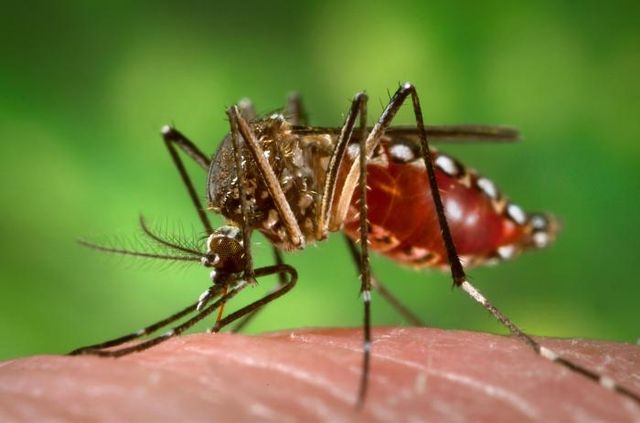
Zika, the mosquito-spread virus sparking outbreaks across the Western Hemisphere and suspected of causing birth defects and neurological problems, has been transmitted through sexual contact in the United States, the Dallas County Health and Human Services (DCHHS) reported Tuesday.
A patient was infected via sexual contact with a person who had recently traveled to Venezuela, a country currently experiencing a Zika outbreak, the health department said. The Centers for Disease Control and Prevention confirmed the infection. There is still no evidence that Zika is spreading in US mosquito populations.
“Now that we know Zika virus can be transmitted through sex, this increases our awareness campaign in educating the public about protecting themselves and others,” Zachary Thompson, DCHHS director, said in a press release.
There had been anecdotal reports that Zika could spread through sexual contact, including a 2011 report that a Colorado man returning from a trip to Senegal passed a Zika infection on to his wife. The researchers suspected but couldn’t confirm sexual transmission. “If sexual transmission could be verified in subsequent studies, this would have major implications toward the epidemiology of [Zika virus]," the authors concluded.
Additional studies have also found evidence of Zika viral particles in semen.
In past comments to Ars, the CDC has downplayed concern over sexual transmission of the virus and its potential threat to public health. “CDC is aware of a few scientific papers that suggests Zika virus may be transmitted through sex. These papers point to a theoretical risk, but the science to date is clear that Zika virus is primarily transmitted to people through the bite of an infected mosquito,” CDC spokesperson Candice Hoffman told Ars last week.
In an updated statement, the CDC said: "Based on what we know now, the best way to avoid Zika virus infection is to prevent mosquito bites. We do not have definitive information on the infectious time period, and will provide more guidance for individuals and clinicians as we learn more. Sexual partners can protect themselves by using condoms to prevent spreading sexually transmitted infections."
The agency also said that in the next few days it plans to issue guidance on preventing sexual transmission of Zika, which will particularly focus on the male sexual partners of women who are or who may be pregnant.
Typically, Zika infections only result in mild dengue-like symptoms—fever, rash, aches, and occasionally pink-eye. But in recent outbreaks, the virus as been linked to alarming upticks in cases of microcephaly, a birth defect that leaves babies with severely shrunken heads and skulls, as well as a paralyzing neurological condition called Guillain-Barré syndrome.
The CDC has issued travel warnings for pregnant women and women who are planning to become pregnant to avoid traveling to more than two dozen countries and territories experiencing outbreaks.
Clarification: The CDC confirmed that the patient in Texas, who had not traveled, acquired a Zika infection.The agency did not investigate the transmission route.
reader comments
48